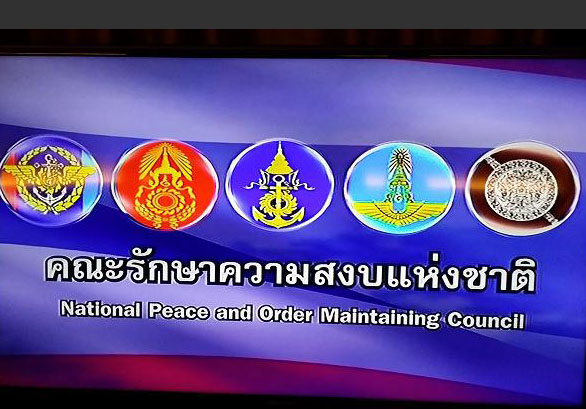An opinion piece by Sam Zarifi, ICJ’s Regional Director for Asia and the Pacific. This Op-ed was first published in the New York Times.
The Thai military removed all doubt about its intentions in declaring martial law earlier this week, and on Thursday officially announced that it was taking control of the government, the 12th time it has done so since 1932.
The newly created Peace and Order Maintaining Command, composed of the commander in chief of the army and the commanders of the Royal Thai Navy, air force and police, announced that it had suspended the Constitution — except for articles related to the monarchy, the activity of the courts, and some “independent” administrative agencies.
The military said that it was acting to protect the peace and resolve the long political impasse that had brought mostly peaceful protests and counterprotests to Bangkok.
It arrested the leaders of different political factions even as they were engaged in negotiations.
But unless the P.O.M.C. can quickly establish a road map for return to civilian rule, it risks setting off a cycle of violence and human rights violations. The sooner the military revokes martial law, the better for Thailand.
The army chief, Gen. Prayuth Chan-ocha, imposed martial law on Tuesday and declared himself the “supreme commander” but strenuously denied that he had, in fact, carried out a coup.
The P.O.M.C.’s authority is based on Thailand’s martial law statute, which has been severely criticized for the unfettered powers it grants the military.
Using it, the military asserts superiority over all civilian authority in matters of security and public order, including the power to arrest and detain people without charge for up to seven days and carry out warrantless searches.
Martial law enables the military authorities to rule by fiat, in effect suspending the human rights guaranteed under the Constitution and the International Covenant on Civil and Political Rights, to which Thailand is a party.
The law also provides the military with immunity from any claims for compensation arising from its actions.
The military has imposed a curfew and set strict controls on the media.
This follows its actions in the first hours of martial law, when the P.O.M.C. moved to shut down TV and radio stations, and issued orders forbidding the media to issue reports “that might distort the facts, cause confusion among the public, or lead to further violence.”
In addition, social media sites and users were prohibited from publishing content that “misleads the public” or “escalates the conflict” or “opposes the operation of the P.O.M.C.”
Initially, the P.O.M.C. had been careful to invoke only a few of its powers under the law, in order to bolster its assertion that its actions did not constitute a coup.
But now it risks an internal backlash and possibly international sanctions — including from the United States, the Thai military’s main backer.
The acting prime minister, Niwatthamrong Boonsongpaisan, was the only political leader who escaped arrest. Mr. Niwatthamrong was already in a weak position as a caretaker leader who only recently replaced Yingluck Shinawatra, ousted earlier this month by the Constitutional Court on contested grounds.
Ms. Yingluck herself was standing in for her brother, Thaksin Shinawatra, the leader of the so-called Red Shirt movement.
His period in office as prime minister proved deeply divisive and was characterized by serious human rights violations; he was ousted in the last coup in 2006 and fled the country to avoid prosecution for corruption
The Red Shirts, who keep winning national elections based on a constituency drawn largely from the provinces, have been at a political impasse with their rivals, the Yellow Shirts, who represent Bangkok’s more affluent population.
The Yellow Shirts have been able to overthrow various Shinawatra-linked governments through a combination of military intervention and judicial and administrative maneuvers.
It is this conflict, largely played out in protests in Bangkok, that allowed the P.O.M.C. to justify its intervention.
In the nation’s capital, troops and police officers appear to be exercising restraint.
Let us hope this continues, for there is a long history of rights violations under martial law in Thailand.
In some 30 of Thailand’s 76 provinces, martial law was already in place before Tuesday, in some cases for years.
Extrajudicial executions, deaths in custody, enforced disappearances and torture have been documented under military jurisdiction. There has been almost no accountability for these violations.
General Prayuth has provided little explanation for his actions this week, given that the political friction of past months was confined to Bangkok.
Moreover, it’s hard to justify shutting down media outlets: there is an escalating risk of violence if the media is unable to report on the situation.
After a decade of misrule, the Thai people deserve greater respect for human rights, stronger institutions and more accountability.
Rule by martial law is the opposite of the rule of law; it fosters an environment conducive to rights violations and should be revoked.

